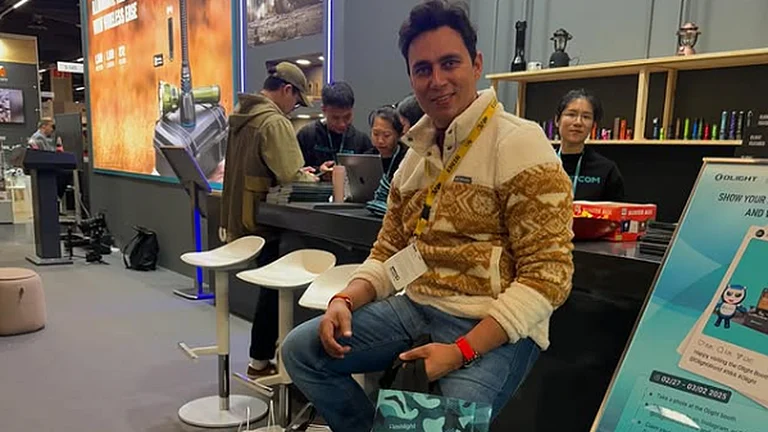Today, we're joined by Ankush Tyagi, an expert with years of experience in chip technology, and who has been exposed to the traditional as well as the advanced application of chip technology in the emerging areas of AI and 5G networks. Welcome, it's a pleasure having you today here.
Hello, thanks for inviting me.
To start, could you elaborate on the areas that you have worked on and how has been your journey into this domain?
My work has mainly been in applying chip technology across several key areas. I’ve spent a lot of time on chips for 5G networks, where the aim is to manage high frequencies and bandwidths. Its objective is to have data transfer faster and connect more devices. Apart from this I have worked on chips for data centers, and there the focus was on making them more efficient and scalable. Doing that helped us in handling huge amounts of data with as little power as possible.
Most recently, I’ve been involved in developing chips specifically for AI which is different from the earlier approach of preferring GPUs and its quite interesting because you can get better results by going deeper and working more on the core technology, so why not?
Interesting!! You mentioned that people are now moving towards more specialized AI chips instead of relying solely on GPUs. What are the key advantages of these specialized AI chips? Can you give us an example of a real-world application where these chips are making a significant difference?
Specialized AI chips offer several key advantages over the traditional GPUs. Actually, AI workloads have unique demands and these chips are very well optimized for such tasks. For example architectures like deep learning are extremely demanding which demands more efficient data processing. These chips achieve that through massive parallelism which eventually also helps in speeding up tasks like training machine learning models. The kind of innovation you are seeing in the autonomous vehicles space is just because of these advancement. Without it, such massive data from sensors could never be processed in real-time for decision making. They're also transforming data centers by powering AI-driven services more efficiently, reducing energy costs, and improving performance.
With AI advancing so quickly and the shift towards specialized AI chips, how do you think AI will shape the future of chip design? Will chip design change as AI grows, and if so, how?
AI will definitely change how chips are designed. As AI models get more complex, we'll need chips that can handle these demands more efficiently. AI isn't just pushing us to create new chips; it's also helping in the design process itself. For example, AI tools are already being used to optimize chip layouts and spot issues before manufacturing. In the future, AI could make the design process faster and also help us in building more customized chips which would be specially designed for AI tasks. We are also seeing the use of AI in the development of AI compilers, which translate high-level AI models into optimized code for these specialized chips and this makes everything run more smoothly and efficiently.
AI compilers sound like one of the next big things. Could you explain what AI compilers do and how they’re impacting the chip industry?
Absolutely. AI compilers are essentially the bridge between AI software and the hardware that runs it. They take complex AI models, which are usually written in high-level languages, and convert them into low-level code. These are optimized for specific hardware like GPUs, TPUs, or specialized AI chips and this is very critical because it ensures that the hardware is used as efficiently as possible, squeezing out every bit of performance while minimizing power consumption.
And all these are really vital in accelerating tasks like neural network training and inference which in turn are really important for the growth of today’s technologies like GenAI and other intensive Machine Learning processes. So, if you really think about it, AI compilers are poised to be a catalyst in the growth of the current capabilities of AI.
This is all very cutting-edge! Before we wrap up, are there any other emerging trends in the chip industry that you're particularly excited about?
Definitely! One of the most exciting trends is the move towards chiplet architectures. Instead of building one large, complex chip, manufacturers are now creating smaller, specialized chiplets that can be packaged together to function as a single unit. This approach allows for greater flexibility and performance because each chiplet can be optimized for a specific task.
The other area, we're starting to see more efforts in is designing chips that are specialized for AI at the edge, enabling real-time processing on devices like smartphones, drones, and IoT devices. These advancements are pushing the boundaries of what's possible in the semiconductor industry, and it's a thrilling time to be involved in chip technology.
Thank you so much for sharing your insights with us today. It's been a fascinating discussion,and I hope we get you here more often to discuss these exciting topics.


























